Free admission for Singapore Citizens, Permanent Residents and visitors aged 6 and below.
In commemoration of Singapore’s 60th year of independence, the National Museum’s special exhibition Once Upon a Tide invites you to embark on a voyage through the ebbs and flows of the island’s transformation from a bustling port to a global powerhouse.
Journey through Singapore’s 700-year history and discover how the sea and river have shaped Singapore’s evolution, witnessing the constant flows of people, goods, and ideas that have together woven the fabric of the nation. Uncover the many connections that have positioned Singapore at the crossroads of the world, and play your part in envisioning Singapore’s future!

The Exhibition
Explore five immersive sections, each representing different aspects of Singapore’s evolution brought to life through experiential storytelling.
Always on the Map
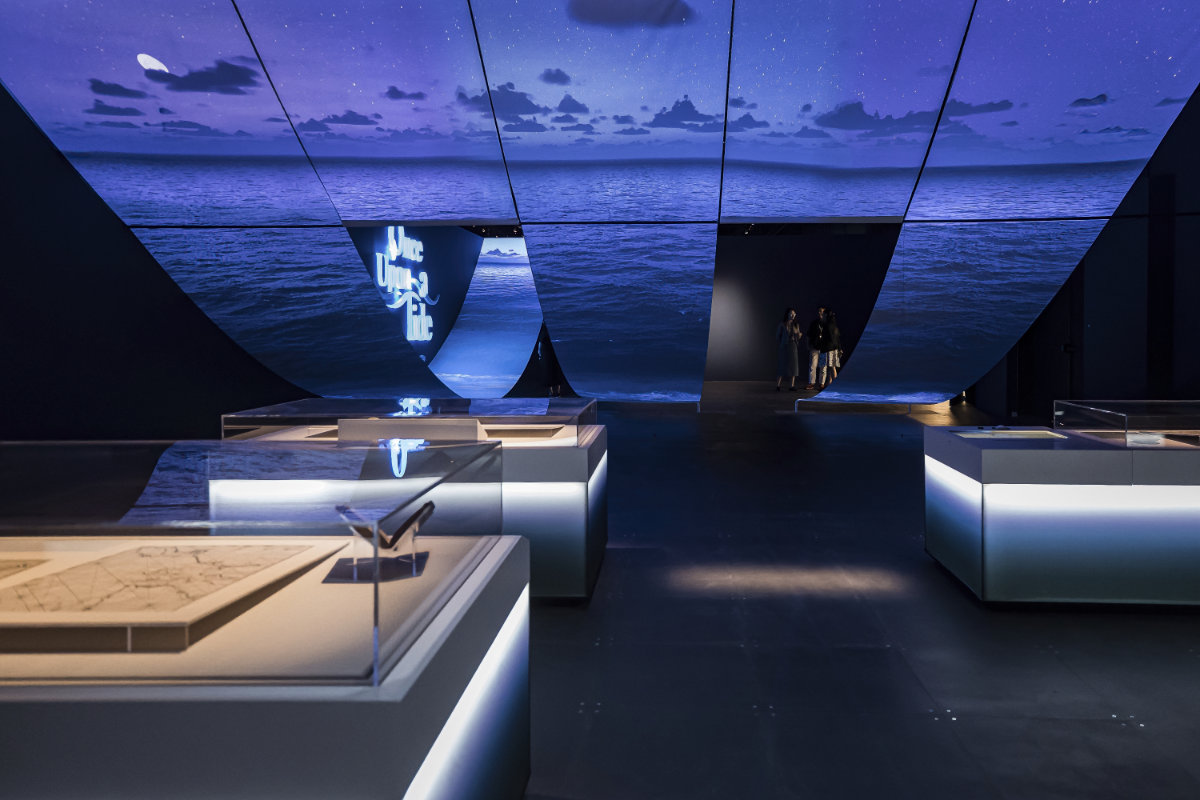
Your journey begins as we trace our island's deep historical roots. Discover key artefacts showcasing Singapore's status as one of the key port settlements in the Malay world and Chinese trade network, long before settlement by the British in 1819. See if you can locate Singapore across different ancient maps!
The River Road
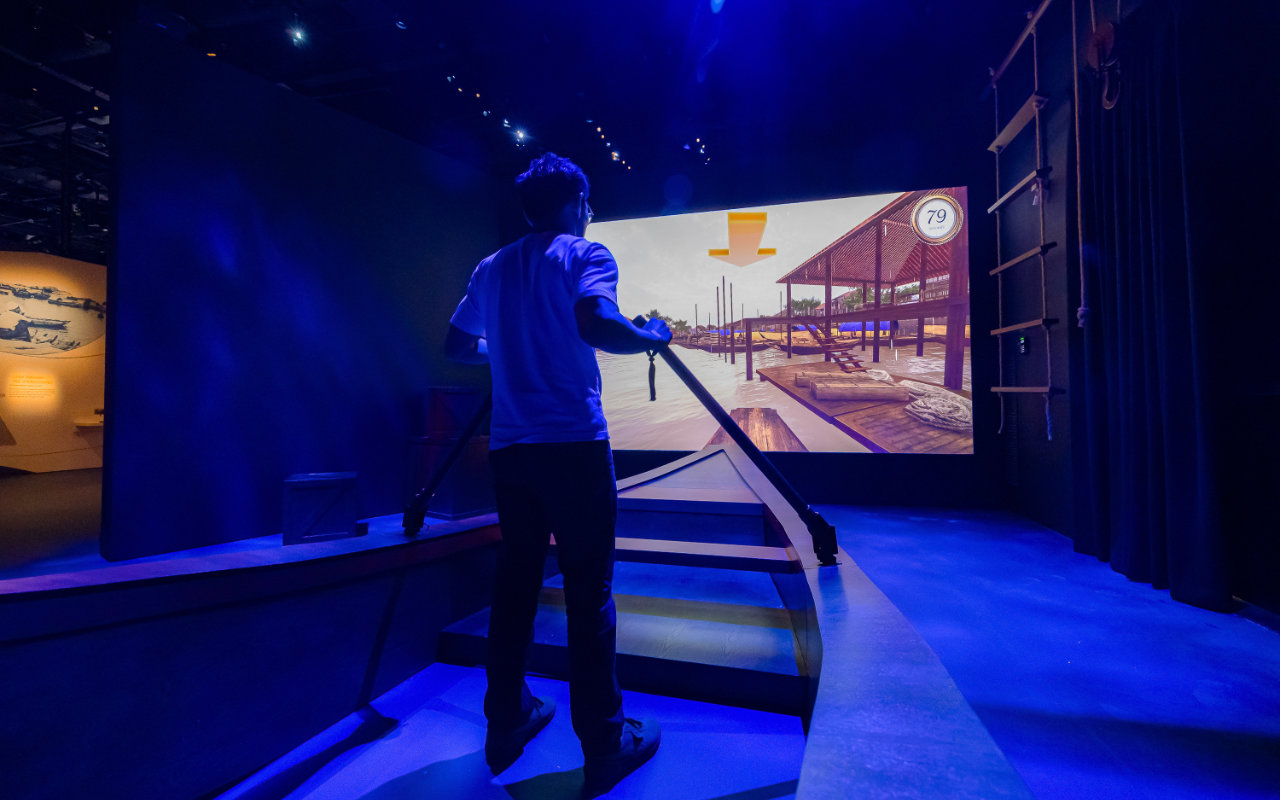
Sail through the history of the Singapore River, the lifeblood of our early settlement and a vital player in the development of industries such as coaling and shipbuilding. Take on the Sampan Challenge game and "row" across the Singapore River, navigating obstacles and battling the elements to safely deliver your passengers to their destination.
Expanding Horizons
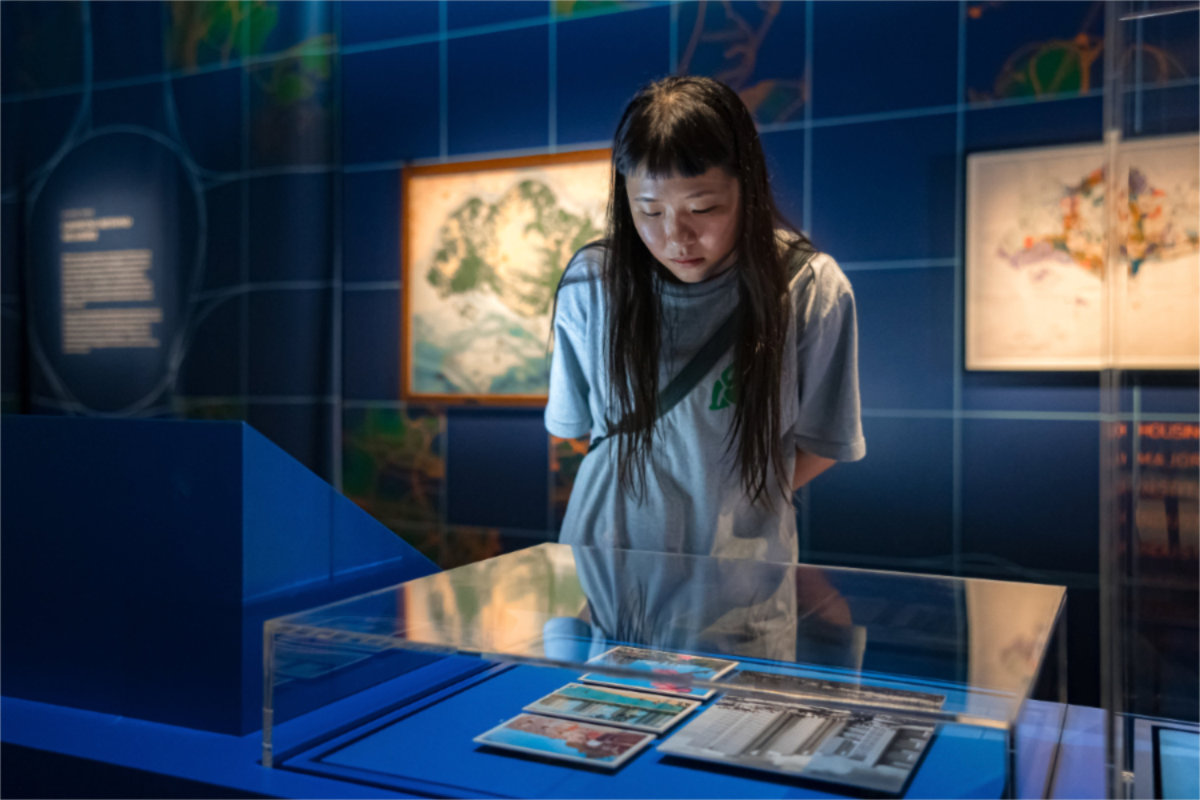
Explore Singapore's forays into creative land planning and reclamation to overcome the inherent restraints of our limited physical size. Interact with a digital slider map to see Singapore's changing coastlines across the centuries.
Flows of People
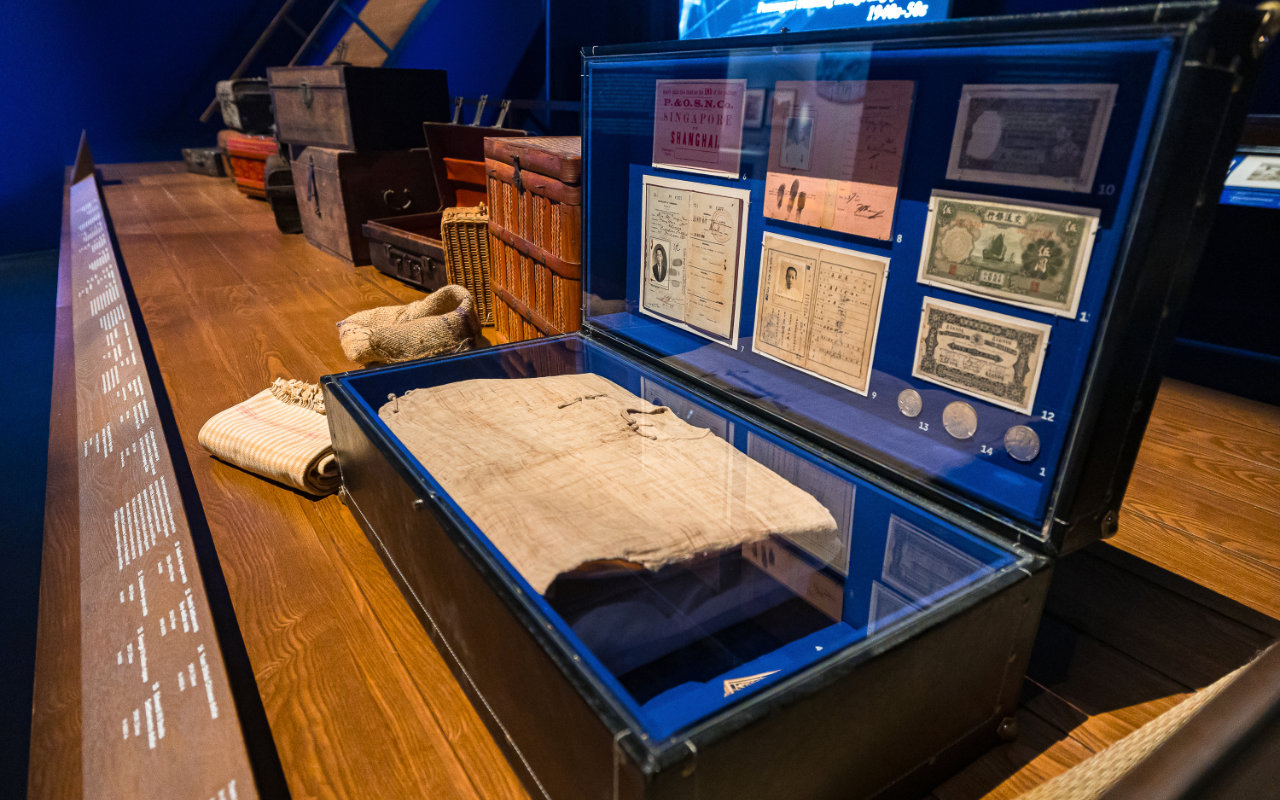
Recognising that multiculturalism is the bedrock of Singapore's identity, this section pays tribute to the individuals who laid the foundation for our development. Through intimate audio and video testimonials, hear the lived experiences of the diverse communities who built our nation, defended it, provided transport services, and cared for others within society.
Making Waves
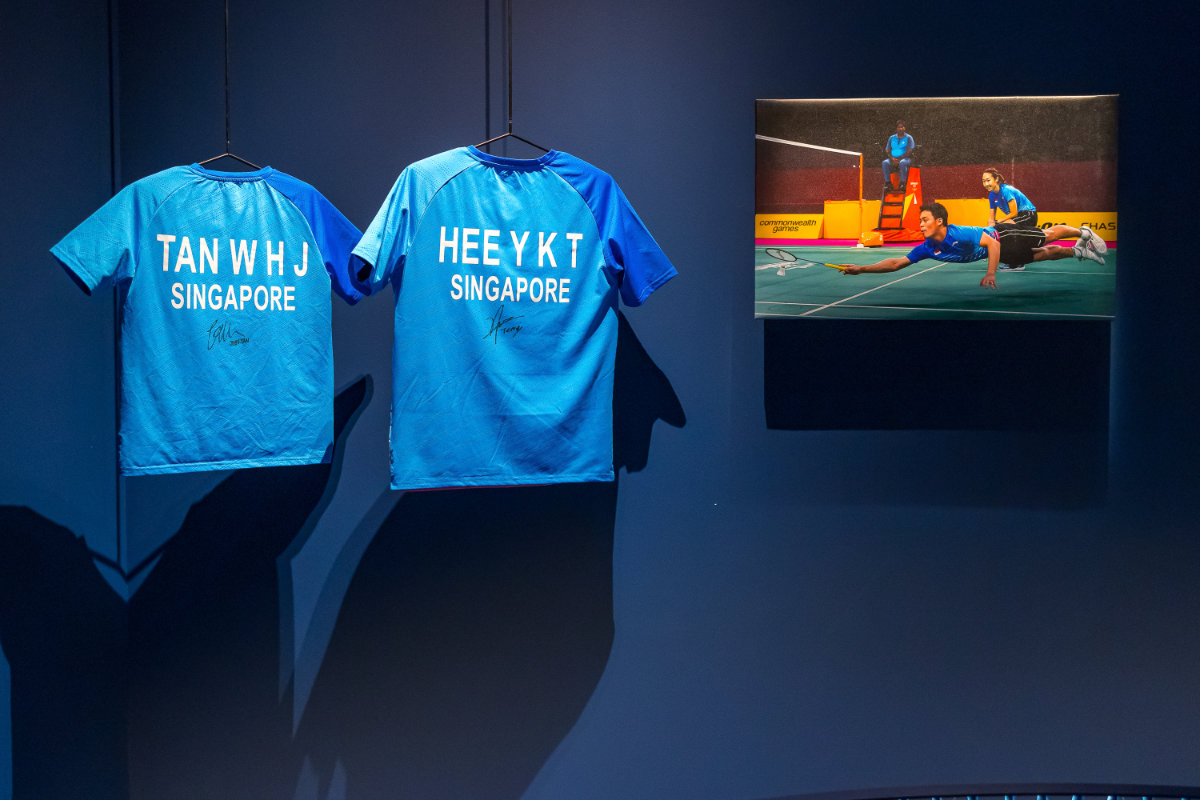
This final section spotlights Singaporeans and homegrown businesses and organisations that have made waves globally across the areas of diplomacy, humanitarian efforts, innovation and hub development. Be inspired by the trailblazers who made us proud and continue to shape the ever-evolving image of what it means to be Singaporean. Test yourself with an interactive Singlish quiz!
A personalised experience
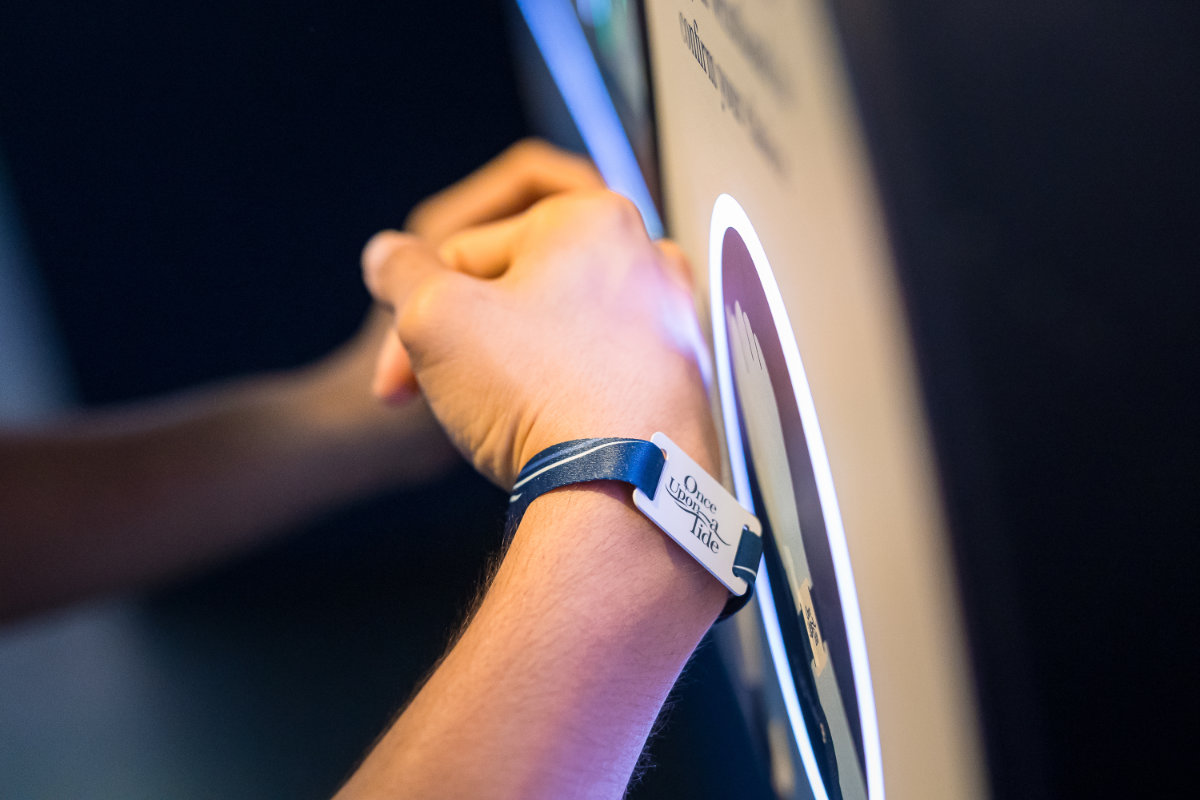
Pick up a personal RFID wristband at the start of the exhibition and use it to answer questions interspersed throughout the exhibition. Reflect on how Singapore's identity and definition of success have evolved over time.
At the end of the exhibition, you will be presented with one of four avatars based on your responses, reflecting your individual values, priorities and aspirations for Singapore's future. Your avatar will contribute to a larger cityscape visual representing the collective vision of Singapore's tomorrow, co-created by all who participate.
Note that you will need to return the RFID wristbands at the end of the exhibition.
Self-guided interactive installation: Get Curious! Building Our Singapore
Daily, 10am – 7pm (early admission at 9am available for school group bookings from 1 Jan 2026)
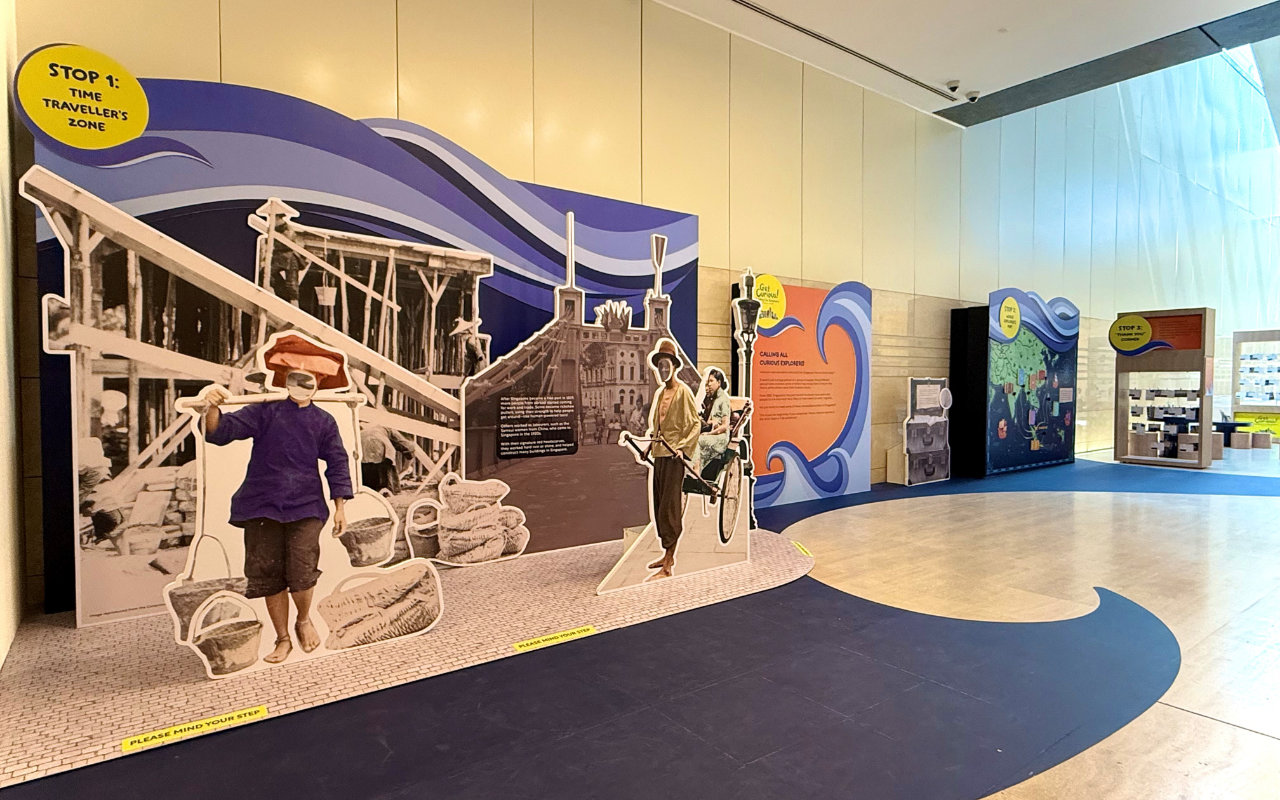
Complement your Once Upon a Tide experience with Get Curious! Building Our Singapore! Located just outside the exhibition gallery, this interactive installation celebrates the invaluable contributions of our past and present-day migrants through three engaging stops:
- Stop 1: Time Traveller’s Zone – An immersive photo opportunity where visitors can imagine being an early migrant.
- Stop 2: World Explorer’s Map – Discover some of the countries that the different communities in Singapore originate from.
- Stop 3: “Thank You” Corner – Pick up a postcard and write a note of appreciation to our migrant workers. These postcards feature photographs taken by migrant workers, selected from the 2019 to 2024 editions of the Migrant Workers Photography Festival.
First presented during Children’s Season 2025, this installation welcomes visitors of all ages. Adult supervision required for children below 13 years.
Waves of Wonder
Younger audiences and families can embark on self-guided visits with the exhibition’s 11 Waves of Wonder family-friendly captions, co-created with educators from My First Skool. Each caption contains bite-sized information and a mission-based activity to encourage children to get curious about the artefacts.
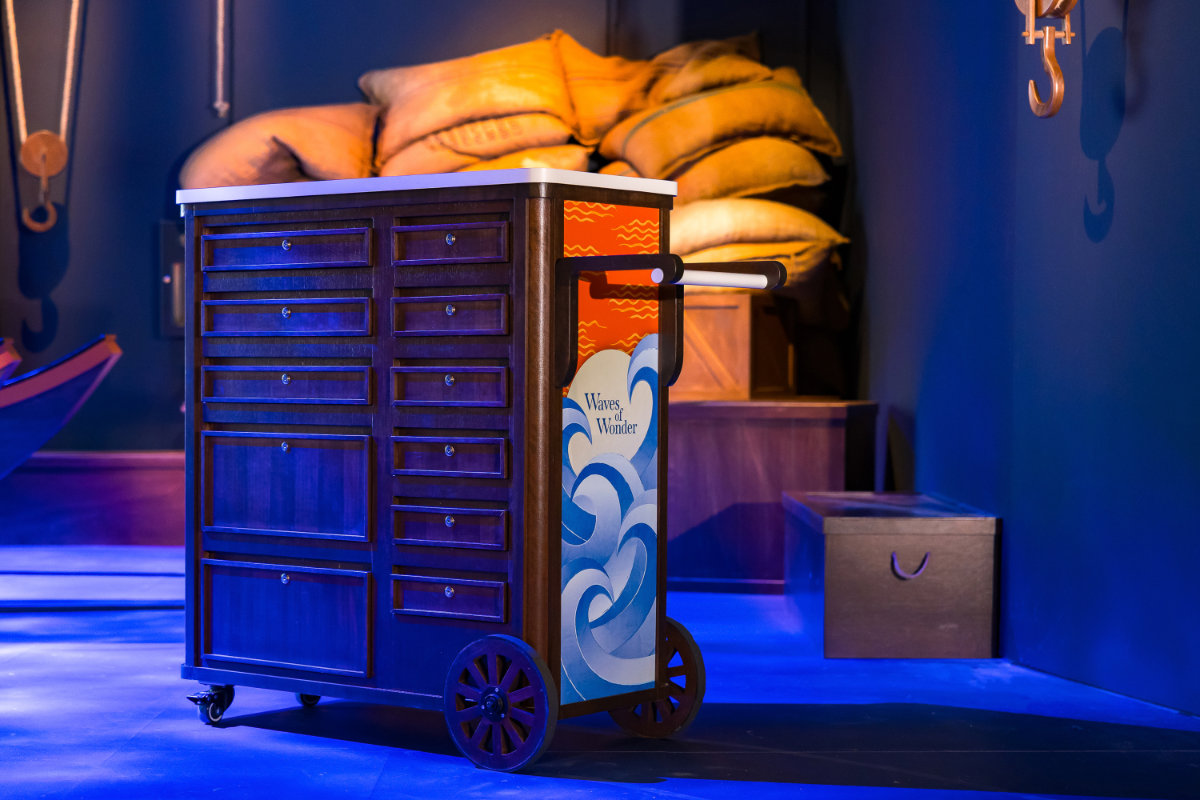
To encourage young visitors and students with additional needs to better engage with the exhibition’s content, the National Museum has also created a complementary and purpose-built Programmes Cart with age-appropriate hands-on activities that pre-school and special needs schools can use during their self-guided visits to the exhibition. Complementary resources will also be progressively available for student groups of various levels.
A Navigator's Adventure
An educational resource recommended for ages 9 & up
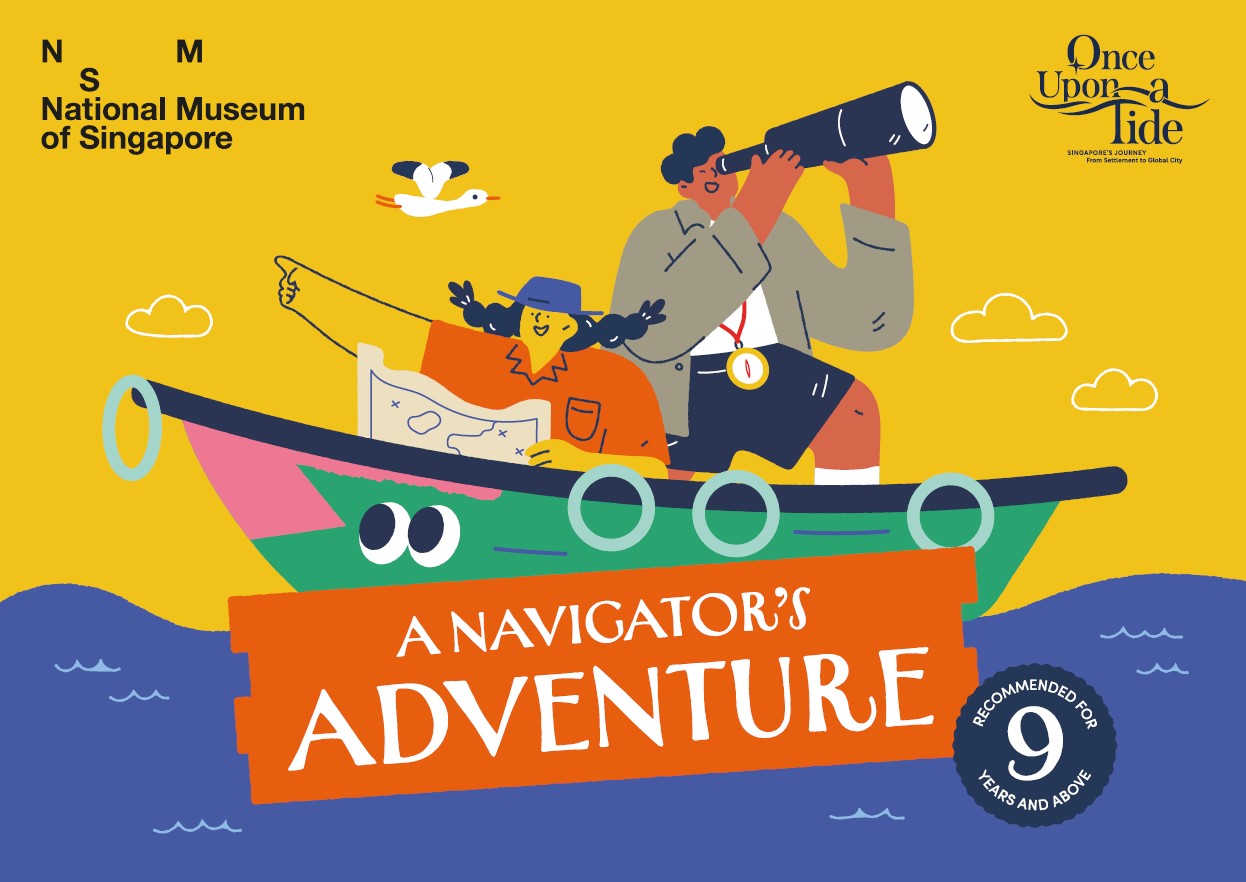
Follow the flow of the Once Upon A Tide exhibition, and record your discoveries in a specially created resource booklet:
Download here
Educators are encouraged to use this booklet as part of a self-facilitated learning journey relating to Primary 4 and 5 Social Studies learner outcomes, in particular:
- Learning about Singapore’s early history and the contributions of settlers
- Development and growth of Singapore as a trading port
- Recognising the importance of resources (e.g. land) and discussing how Singapore overcomes the challenges of limited resources
- Understanding Singapore’s connections with the world
- Showing care for, and developing a sense of belonging to, one’s community and country
Publication
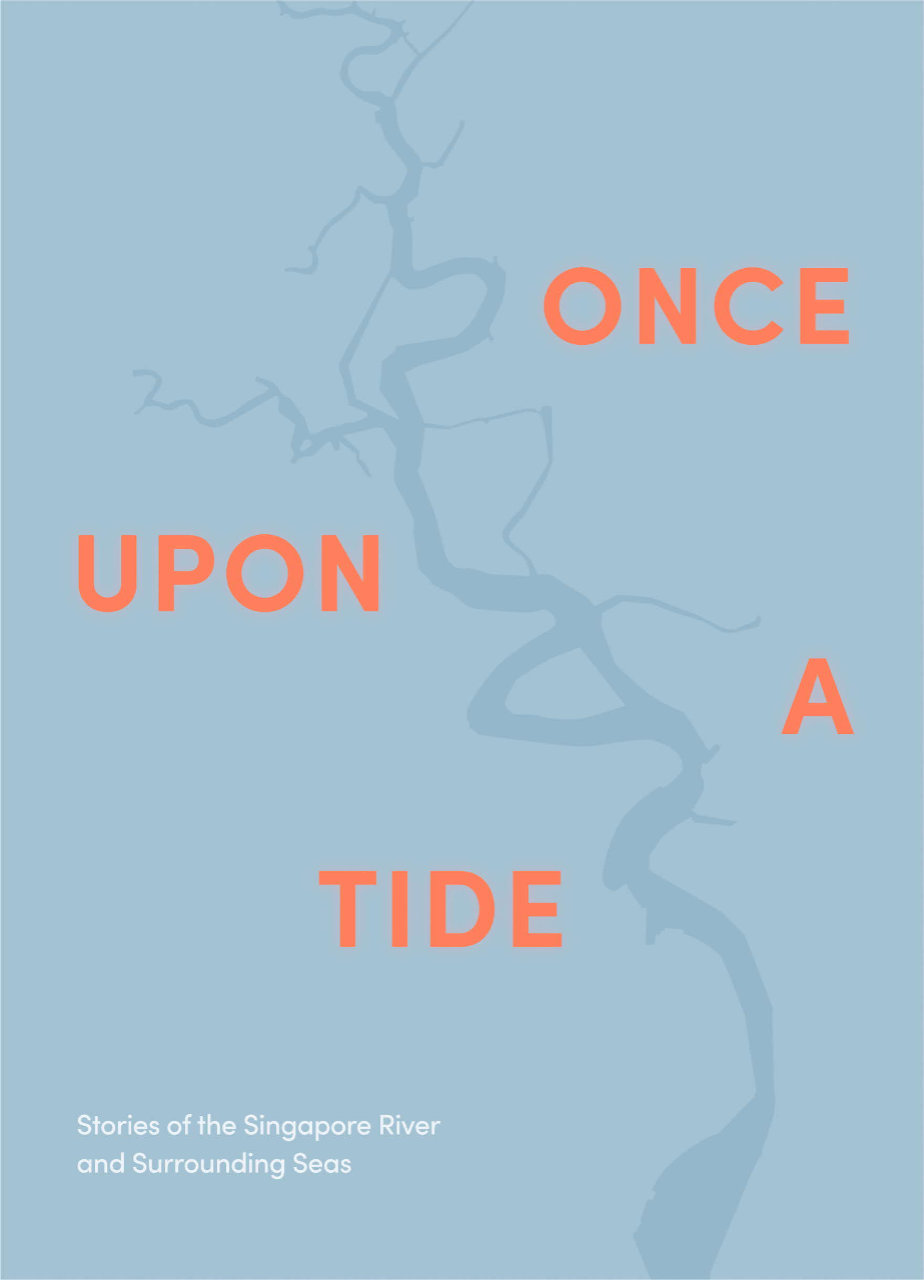
Once Upon a Tide: Stories of the Singapore River and Surrounding Seas
What is the Singapore River’s place in our history? For centuries, Singapore’s waters have played an integral role in our journey, with the river’s transformation mirroring the island’s own evolution from a thriving 14th-century port to a global powerhouse of today.
Written by the National Museum of Singapore’s curatorial team in commemoration of Singapore’s 60th year of independence, this collection of stories explores the milestones and memories of the Singapore River and its surrounding seas as the historical origin of our connections with the world.
From ancient ceramics unearthed near the Singapore River, to the catalytic effect of the Suez Canal on Singapore’s port and harbour, and representations of the river in our cultural imagination, Once Upon a Tide invites you to discover how past and present connections between Singapore’s river, sea and identity continue to shape the currents of our future.
Available for purchase at our museum shop or online.
Buy online
Collecting Contemporary Singapore: Wave Makers
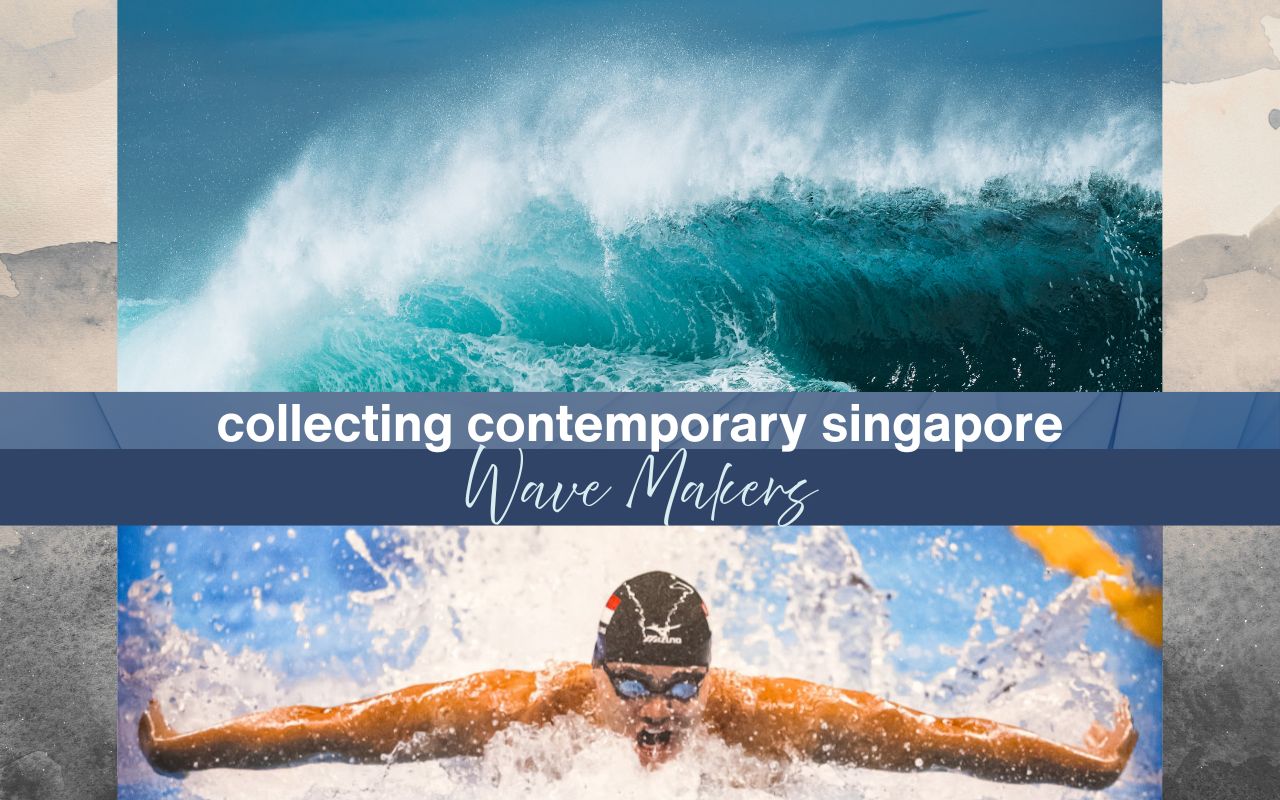
In conjunction with this exhibition, this edition of Collecting Contemporary Singapore invites contributions of items and stories of Singaporean 'Wave Makers' who have made us proud on the global stage. Are you a Wave Maker, or do you know a Wave Maker whose story deserves to be shared? Share it with us, and help us tell more diverse stories of Singaporeans who have made their mark on the world.
Find out more